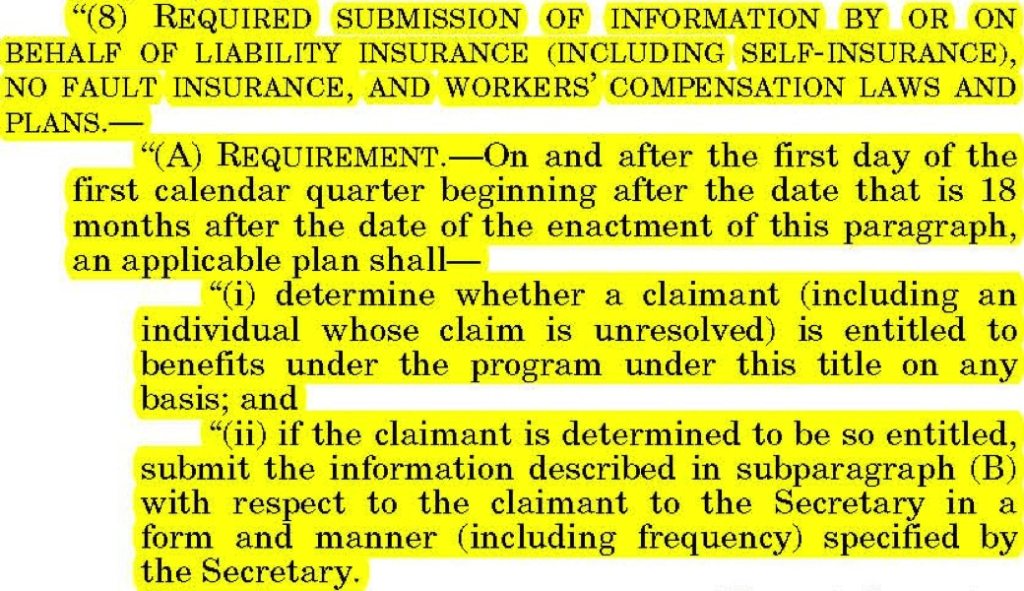There’s nothing worse than a late hit. Most likely, you never even see it coming. As experts at The PLAINTIFF’S MSA AND LIEN SOLUTION, we see these too often. You roll with the punches, win your case, and win a settlement for your client. Case closed, right? Wrong. Because that’s when the blow comes. Medicare starts denying payment of settlement-related bills because they know about your client’s settlement. In fact, they know everything, your client’s settlement amount, attorney’s fees, litigation costs and liens, and the ICD-9 or ICD-10 disease codes that are part of the case. The feeling that this is going to come back to bite you is unshakeable, but just you wait.
You didn’t report your client to Medicare, and your client didn’t report themselves, so how does Medicare know all of this? The only way your client would self-report is if they had become Medicare eligible post-settlement. In this case, a Medicare Secondary Claim Development (SCA) Red Letter and questionnaire would have compelled them to self-report. However, your client was Medicare eligible on or before the date of settlement. That only leaves one possible entity, the defendant. But what is their motivation to report your client’s settlement to Medicare? A big, bad, scary stick in the form of the Section 111 Medicare Secondary Payer Mandatory Report. The first part of the law is below:

The language used in this mandatory Medicare liability settlement reporting requirement is disturbingly vague, leaving a lot of questions. What exactly are the defendants reporting about you and your client? How much information are they turning over, and when? The answers are alarming.
What We Found
Here is what we discovered:
There are 196 data points within a Section 111 report, and three of them are critical to plaintiffs. They are:
(1) The date of settlement.
(2) The total amount of the settlement, otherwise known as the Total Payment Obligation To Claimant or TPOC.
(3) The ICD-9 or 10 codes that describe the injuries or conditions settled as part of your client’s case.
That’s it. Yet, if these three points aren’t alarming enough, just imagine what is in the rest of the data points – all 193 of them.
All of this information is reported at the date of settlement, meaning the date the settlement agreement is signed or the date that you have a court order approving the settlement if you need that. However, the responsible reporting entity (usually the defendant or the self-insured) that does not report a Medicare-eligible beneficiary’s liability settlement to Medicare is subject to $1,000 per day, per claimant penalty. The exact text is below:

What Does This Mean?
What does all of this mean for your client? Once this information is in to Medicare, they file it away for future use. Basically, the expectation is that Medicare is now, from the date of settlement forward, secondary payer to the settlement your client has just received for all of the future Medicare-allowable, accident or incident-related expenses covering the conditions or injuries that were the subject of the settlement. Those ICD-9 and ICD-10 disease codes? Medicare matches those up with future medical bills. A match means payment is denied, and your client is left footing the bill until they can prove they have spent their TPOC on Medicare-allowable bills, after which Medicare covers everything for the rest of client’s life. Yet, if your client’s settlement money has already been spent, or otherwise allocated, it gets worse.
In the end, your client may be left with insufficient funds to both take care of denied payments and all of their other needs. And who are they likely to take it out on? Most likely it’s you. An angry phone call, a bar complaint, a malpractice claim? One or all of these could be your fate.
Let Us Help
Don’t let this happen to you. Put proper planning in place from the very beginning, and take control of your client’s Medicare issues with The PLAINTIFF’S MSA AND LIEN SOLUTION. What you don’t know about Medicare reporting and skillful use of strategically-minimized (and still voluntary) MSAs to avoid major client Medicare issues can affect your time, money and reputation. Let us help you through it, The PLAINTIFF’S MSA AND LIEN SOLUTION is here for you. Please visit our website at www.plaintiffsmsa.com or call us with any questions at 888-672-7583.